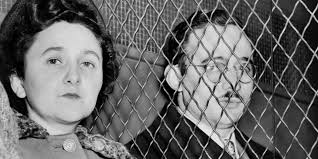Back in the day, when I was writing this blawg on a regular basis, I wrote often about lethal injection. (You can click the link on the "Labels" section at the top right if you want to bury yourself in those posts.). I thought I knew quite a lot about it:
- how the drugs were basically unavailable
- how the states went out of their way to ensure that nobody could know what they were doing or who in particular was doing whatever it was they were doing
- how whoever those secret folks were who were doing whatever it was they were doing were often grossly incompetent and unable to do whatever it was
- how . . . .
You get the idea.
Hell, I'd talked with experts. I'd read the books. I followed all the litigation. I'd even gotten a court to declare that the Buckeye State's method of killing by injection was unconstitutional and had to be changed.*
And I followed the sad saga of lethal injection as it got screwed up over and over, as it tortured and tortured and failed to live up to the promise that it would, as the Ohio statute mandated, "quickly and painlessly cause death."** So, as I said, I thought I knew quite a lot about it. And about how screwed up it was.
Boy was I ever wrong.
Corinna Barrett Lain, a law prof at the University of Richmond, makes it clear in her new and powerful and frankly terrific book, Secrets of the Killing State: The Untold Story of Lethal Injection.Lain has scoured the country, pored over the protocols (when she could find them), studied the cases, reviewed the autopsies, spoken to the litigators and the experts [disclosure: not me, though my case is footnoted a couple of times], read the books and articles, listened to the folks who invented lethal injection, those who oversaw and those who performed and those who witnessed it.
And, not incidentally, she looked closely at the folks on the gurneys. She heard (OK read about) their choking and their gasping, their twitching and their reaching and their clutching their fists and their desperate but futile efforts to get a breath or get up off the table. Or even to advise the incompetents about how to get a needle into them, or just how to get it done. She examined their last words.
She's done, that is, a deeply thorough and exhaustive exegesis of how and why it's totally and beyond repair fucked up. And how the states that kill don't really give a rats ass about any of that because all they want to do is ensure that the guy (it's almost always a guy) ends up dead. And then they'll declare that all went according to plan and smoothly and kindly, quietly and peacefully - and humanely forgodssake - despite all the evidence to the contrary.
And finally there's this, from her Epilogue:This project has offered (insisted upon even) a front row seat to who these people are. Many, too many to count, found redemption on death row, and prayed to their Lord and Savior, Yahweh or Allah, as they died, some after starting prison ministries. As Saul became Paul, so it is for many on death row. Others were just deeply broken people, desperate to go back to their younger selves and warn them to stop before it was tragically too late. Over and over, this was a theme in the last statements I read. A few went out defiantly, but very few. For the vast majority of these prisoners, it was evident that the person who committed that terrible crime just wasn't there anymore.
(Endnote citation to the biblical story of Saul becoming Paul omitted)
Yeah.
------------
*The state ignored violated that order, and a couple of months later an appellate court declared that it wasn't a real order anyway and so didn't count.
**That's from Section 2949.22(a) of the Ohio Revised Code.















